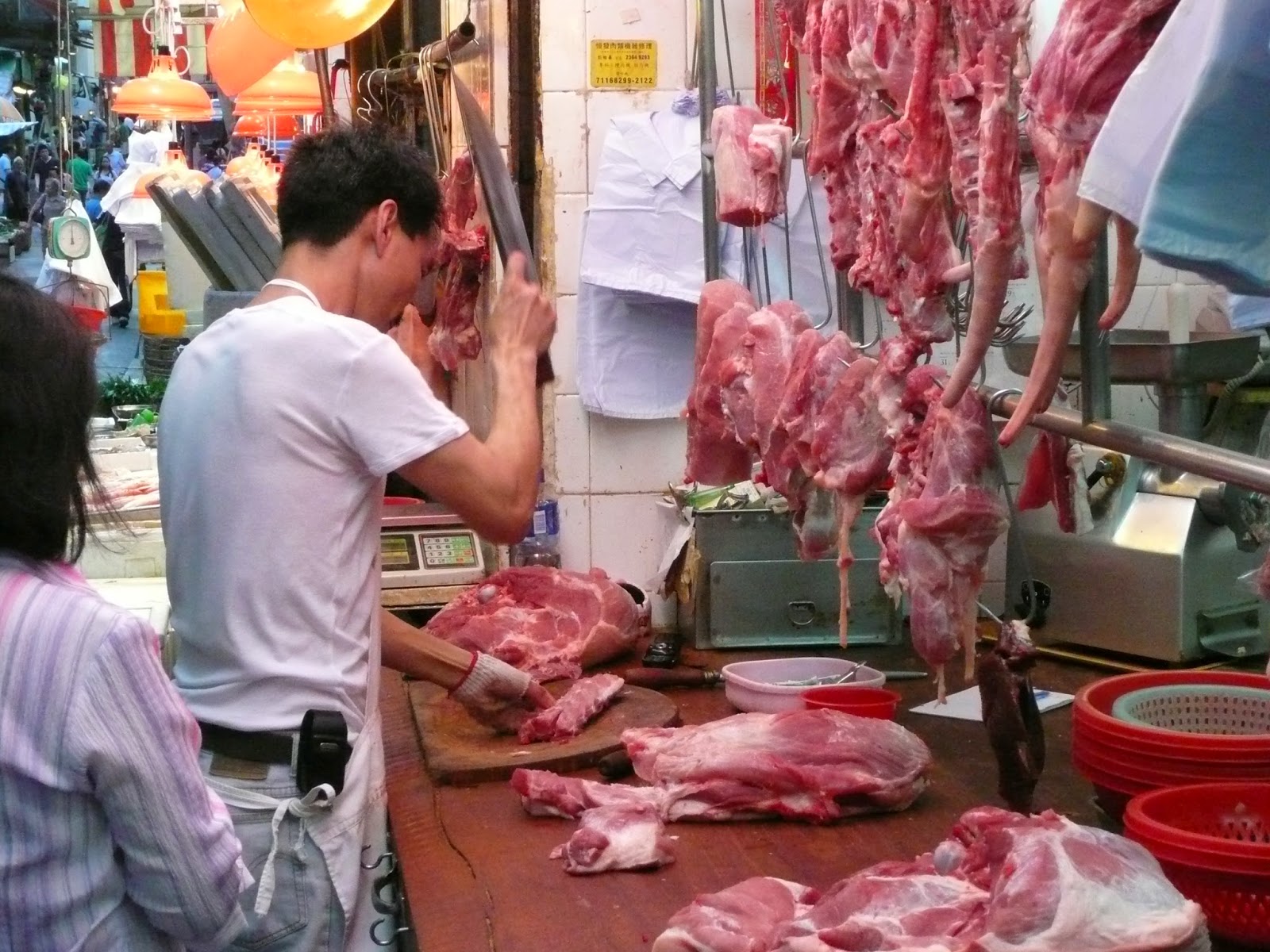Immigrate to Canada as a Butcher

Immigrate to Canada as a Butcher: Canada is a nation renowned for its liberal immigration laws and rich cultural diversity. Immigration may be a fantastic chance for people who want to start a new life in our lovely country. Butchery is one occupation that has been in great demand in Canada. Butchers are essential to the nation’s food business because of the nation’s expanding population and growing demand for meat products.

This article will give a general summary of the immigration procedure for butchers who wish to move to Canada and start a family there. This article will assist you in comprehending the criteria and procedures associated with becoming a butcher in Canada, whether you are a seasoned professional or are just starting out in the industry. Enough Info
Read Also: How To Immigrate To Canada As a Skilled Worker
FAQs & Answers
How many hours does a butcher put in per week?
Although it can be cold, your workplace will be indoors and spotless. You would put in about 40 hours each week, including weekends, evenings, and early mornings.
How does one become a butcher in Canada?
Although there are many paths you can pursue to become a butcher, fishmonger, or another related profession in Canada, we’ve listed the top 4 since they increase your chances of getting accepted: a system for Fast Entry. Program for Provincial Nominees. The Northern and Rural Immigration Program.
How much money do butchers make in Canada?
In Canada, a butcher makes an average wage of $35,100 annually or $18 per hour. Most experienced workers earn up to $42,900 per year, while entry-level roles start at $31,200.
Who is a Canadian Butcher?
If a person works in the meat and poultry sector in Canada and performs activities like slaughtering, processing, and packing, they are recognized as a proper butcher. Common names for these people include industrial butchers, meat cutters, and poultry preparers.
In order to be regarded as a butcher in Canada, one must possess the required training and expertise, including the capacity to slaughter, prepare, and package meat. The National Occupational Classification (NOC) number 9462 for this occupation is a crucial consideration when applying for butcher employment in Canada. How To Practice Self-Care (All You Need to Know)
We’ll go into detail about the criteria and procedures for becoming a butcher in Canada in this tutorial.
Butcher Jobs to Expect After Immigrate to Canada as a Butcher
Understanding the numerous butcher jobs available is crucial when thinking about immigrating to Canada as a butcher. Butchers in Canada play a variety of duties depending on the animal.
The main duty of a meat packing plant is to package and deliver meat to customers. Air Knife Meat Cutter, Animal Eviscerator, Beef Boner, Brisket Cutter, Carcass Splitter, Head Boner, Poultry Butcher, and many others are examples of possible job titles in this environment.
Butchers are in high demand in Canada’s Food and Beverage Processing business as well. Enzyme Injector, Meat Roll Tier, and Poultry Slaughterer are a few possible job titles in this industry. Other general butcher positions, such as Beef Boner, Chicken Plucker, Livestock Killer, and Slaughterhouse Butcher, are also in demand across the nation.
It is crucial to comprehend the numerous employment responsibilities and industries in which butchers are needed when moving to Canada as a butcher. You may use this information to assist direct your job search and improve your chances of being hired as a butcher in Canada.
Read Also: How To Immigrate To Canada As A British Citizen
Butcher Duties in Canada
It’s crucial to comprehend the particular obligations and professional requirements that come with being a butcher when you decide to relocate to Canada. There are several categories of butchers in Canada, such as industrial butchers, meat cutters, and poultry preparers. How to travel to Guinea (Visa-free Guide)
Your main duties as an industrial butcher will be to kill animals, skin and clean meat, remove inedible parts, cut the animal into sections, and slaughter cattle, calves, and sheep non accordance with religious regulations.
Cutting beef, lamb, hog, or veal into precise sizes, removing bones, and dividing the meat into slices for sale or for wholesale usage are all responsibilities of an industrial meat cutter. Also, you’ll be required to clean parts of the meat of any skin, extra fat, bruising, or other blemishes.
To prepare chicken for further processing or packing, a poultry preparer’s duties will include slaughtering poultry, removing inedible portions, plucking the feathers, and cleaning the poultry.
You will be better prepared to explore opportunities that complement your abilities and expertise if you have a firm grasp of your duties as a butcher in Canada.
Requirements to Immigrate to Canada as a butcher
Both the general and particular immigration criteria must be satisfied in order to immigrate to Canada as a butcher. The breakdown of these needs is as follows:
General Requirements for Immigration to Canada:
Language ability:
You must pass a language test to demonstrate your language skills and be able to speak either English or French or both.
Age restrictions:
Those who do not satisfy the age limit for worker immigration to Canada are ineligible for butcher positions.
Educational background:
You must have finished secondary school and earned a high school diploma.
Arranged employment:
Your immigration procedure will go more quickly and smoothly if you already have a job offer in hand.
Ability to adapt to the environment:
Before moving to Canada to work as a butcher, you must pass a medical fitness examination.
Work experience:
In Canada, experience is highly prized, therefore having more experience increases your likelihood of being accepted for immigration.
Specific Requirements for Butchers: Butchers must fulfill specified requirements before they may come to Canada, such as finishing a course in industrial meat cutting or having related work experience.
Moreover, industrial butchers, meat cutters, and poultry preparers may receive on-the-job training. With more expertise, you could be able to evaluate, test, and grade work, and perhaps move up to a supervisory role.
Pathways to Immigrate to Canada as a Butcher
You need to complete particular studies in order to become a professional butcher in Canada. They consist of:
- Job offers
- Express Entry (with a focus on the Federal Skilled Worker Program)
- Demanding professions
- Programs for Provincial Nominees
Read Also: Italian Schengen Visa Application From Nigeria
Job Offers
The best approach to becoming a butcher in Canada is to receive a job offer. The Canadian employer must first make sure that no other Canadian citizen possesses the same set of talents as you.
Express Entry
Fast Entry is an easy way for a butcher to immigrate to Canada. You must establish a profile and accurately enter your information. The Canada Experience Class, the Federal Skilled Worker Program, and the Federal Skilled Trades Program are the three available profile possibilities. The Federal Skilled Worker Program is the finest choice.
Demanding Professions
The National Occupational Classification (NOC) lists butcher positions as in demand, providing you with a fantastic opportunity to come to Canada as a butcher.
Program for Provincial Nominees
You can come to Canada via the Provincial Nominee Program in addition to the other routes as a butcher. You will need to be chosen by the nominated province and must reside and work there.
The program is intended for employees who wish to live and work in a certain province. If implemented properly, this policy can benefit the majority of foreign workers seeking to become butchers in Canada.
6-Step Process to Immigrate to Canada as a Butcher
To start your butcher immigration route to Canada, adhere to the following steps:
1. Create an Express Entry account. Go to the IRCC website and register for immigration. Thereafter, you will be required to pay an application fee.
2. Choose the appropriate Express Entry category. Choose the category that best fits your scenario after creating your Express Entry account. There are four choices available to you:
- Canadian Experience Class
- Federal Skilled Trade Program
- Federal Skilled Worker Program
- Program for Provincial Nominees The Federal Skilled Worker Program is the suggested solution for butchers.
4. Discover a Career and Get an Offer Finding employment as a butcher in Canada is the next step. The Canadian Professional Meat Cutters Association’s job board has listings for open positions.
5. Get a call to apply You can be given the opportunity to apply for the Express Entry program based on your position in the Comprehensive Ranking System (CRS). Be sure to have all of your documentation on hand, including your language test results, identity documents, financial documentation, and evidence of your employment history.
6. Send in your application and any necessary documentation. You have 60 days from receiving an invitation to submit an application. Include all required paperwork, such as your employment offer letter, the results of any language tests, your IDs, financial evidence, and proof of work experience. Moreover, you must pay a $150 Canadian application fee. How To Build a Relationship With Your Stepchildren
Purchase a Work Permit Your work permit will be submitted as soon as your visa is accepted. The normal processing time for visas is two weeks. As soon as you arrive in Canada, you can pick up your ID documents and work permit.
Conclusion
Similar to you, thousands of wholesale and retail butchers are relocating to Canada. Learn how you can join them. There should be more butchers in Canada, both retail and wholesale. Everything you need to know if you’re considering becoming a butcher in Canada is available right here.
Read Also: How to travel to Georgia (Visa on arrival)




